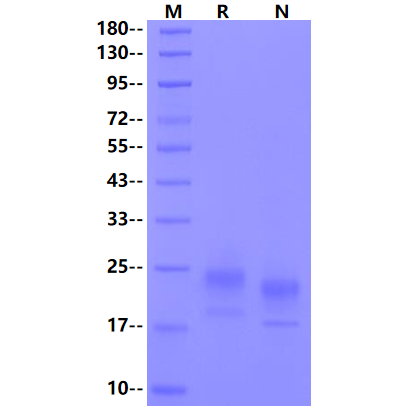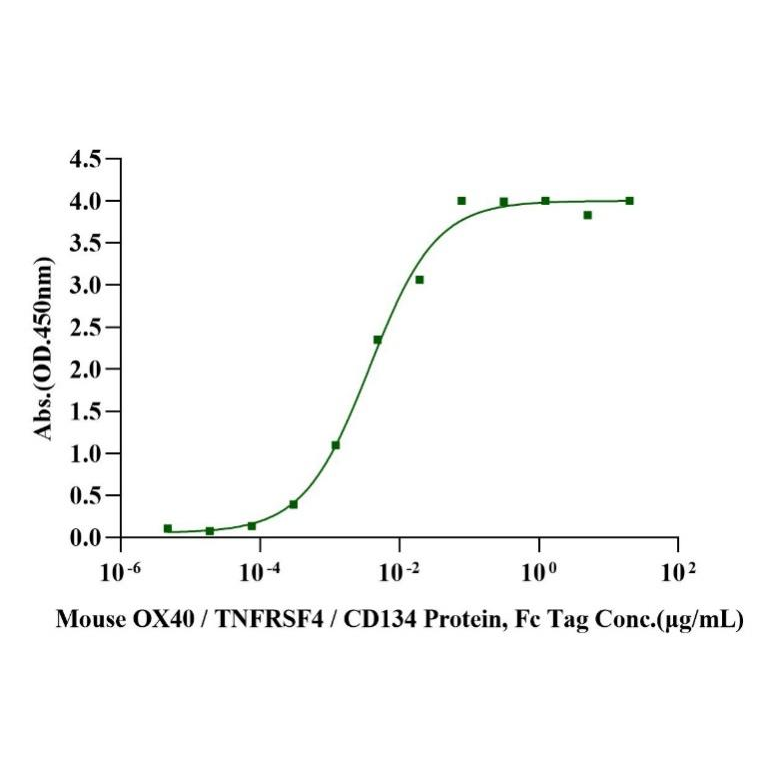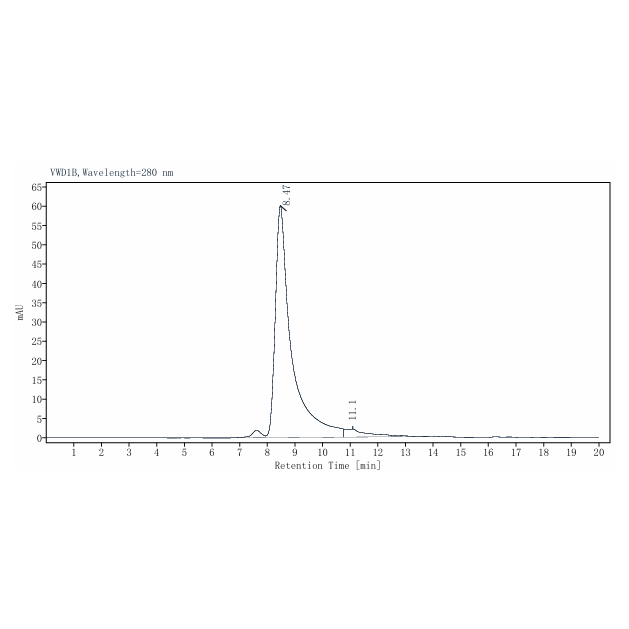2μg (R: reducing condition, N: non-reducing condition).
Product Details
Product Details
Product Specification
| Species | Mouse |
| Synonyms | OX40L; TNFSF4; CD252; Glycoprotein Gp34; TXGP1; CD134 ligand; CD134L |
| Accession | P43488 |
| Amino Acid Sequence | Gln49-Leu198 with His Tag at N-Terminus |
| Expression System | HEK293 |
| Molecular Weight | 23-25&20kDa(Reducing) |
| Purity | >95% by SDS-PAGE &>90% by SEC-HPLC |
| Endotoxin | <0.1EU/μg |
| Conjugation | Unconjugated |
| Tag | His Tag |
| Physical Appearance | Lyophilized Powder |
| Storage Buffer | PBS, pH7.4, 5% trehalose |
| Reconstitution | Reconstitute at 0.1-1 mg/ml according to the size in ultrapure water after rapid centrifugation. |
| Stability & Storage |
· 12 months from date of receipt, lyophilized powder stored at -20 to -80℃. · 3 months, -20 to -80℃ under sterile conditions after reconstitution. · 1 week, 2 to 8℃ under sterile conditions after reconstitution. · Please avoid repeated freeze-thaw cycles. |
| Reference |
|
Background
OX40, a member of the TNF receptor family, is primarily recognized for its role in promoting effector T cell differentiation, proliferation, long-term survival, and the production of pro-inflammatory cytokines. It also inhibits the differentiation and suppressive activity of regulatory T cells (Tregs). OX40 is expressed on activated CD4+ and CD8+ T cells, as well as on other cell types. The OX40 ligand, expressed by antigen-presenting cells (APCs), activates the OX40 signaling pathway, which enhances the immune response. The interaction between OX40 and its ligand leads to increased CD4+ and CD8+ cell proliferation, stimulated cytokine production, and improved survival of antigen-specific memory T cells. OX40 expression has been identified as an unfavorable prognostic marker and may be a potential target for future immunotherapies. In the context of esophageal carcinoma (EC), OX40 has been identified as a novel molecule; its elevated expression is associated with favorable clinical outcomes. As a second immune checkpoint, OX40 may have significant implications for the prognosis and immunomodulation of EC patients. In mice, the absence of OX40 results in a significant reduction in the number of effector memory CD4+ cells and a diminished CD8+ response, leading to accelerated tumor growth. Consequently, the immune-stimulating properties of OX40 agonists could potentially counteract some of the immunosuppressive properties within the tumor environment.
Picture
Picture
SDS-PAGE
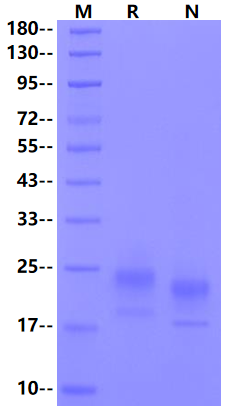
SEC-HPLC
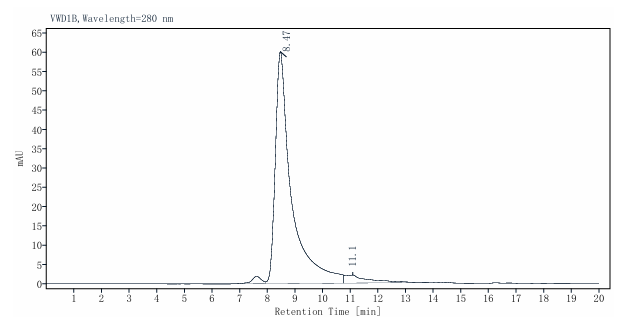
The purity of OX40 Ligand/TNFSF4 His Tag Protein, Mouse is greater than 90% as determined by SEC-HPLC.
ELISA
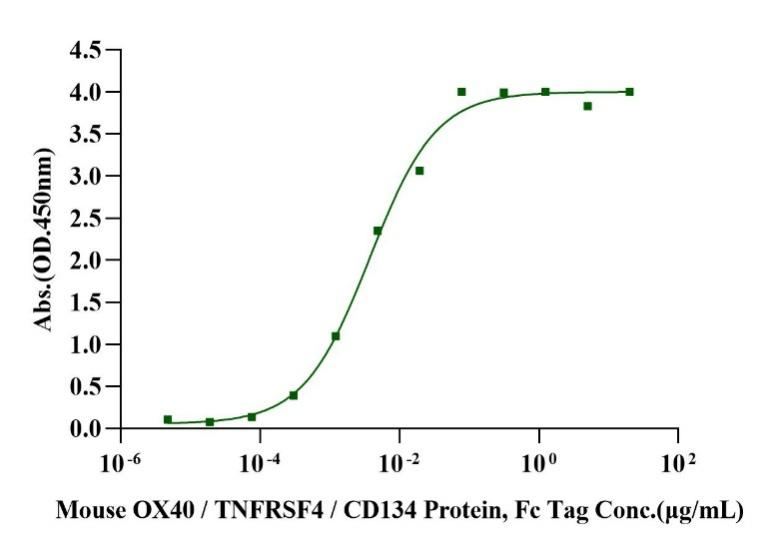
Immobilized OX40 Ligand/TNFSF4 His Tag Protein, Mouse (Cat. No. UA011097) at 0.5μg/mL (100μL/well) can bind Mouse OX40 / TNFRSF4 / CD134 Protein, Fc Tag with EC50 of 2.75-5.11ng/mL.
